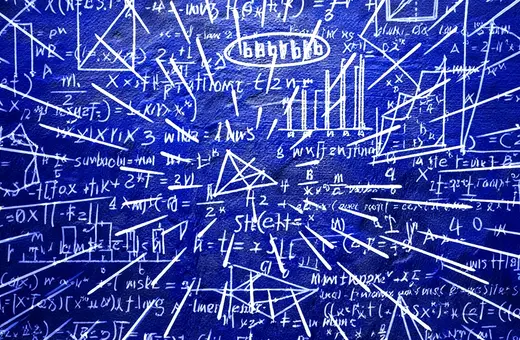“There is more to be said for stupidity than people imagine. Personally I have great admiration for stupidity” – the sentiment behind Oscar Wilde’s bonmot is strangely fashionable these days. For a good reason.
The music we are listening to influences our opinion of the wine we drink, the weight of the spoon influences how creamy we find the yoghurt and our moral assessment of strangers depends on what movie we have just watched. I call this paradigm of empirical findings the ‘We’re All Stupid’ paradigm.
Scientists and academics in general are in the business of giving rational and logical explanations. So they may feel threatened by this deluge of evidence of our irrationality. And they do. But the standard response is that while the reasoning abilities of the hoi poloi may be subject to these biases, scientists, and experts in general, are safe: the ‘We’re All Stupid’ paradigm becomes the ‘They’re All Stupid’ paradigm. A somewhat elitist move, no doubt, but it is also factually incorrect: even expert probability-theorists are very easily fooled into making the most basic mistakes about probability and wine experts routinely mistake white wine with added odorless colorant for red wine.
I argue that we should embrace our stupidity. Rather than setting ourselves up to fail all the time, we should take our emotion-infused, irrational, oversimplifying mental setup as the baseline. Only in rare and exceptional moments do we manage to overcome our stupidity and achieve true rationality.
Just how stupid?
My central case study will be food. You might think that you taste food with your tongue – just as we perceive sound with our ears and we perceive colors with out eyes. But this is completely wrong. Our tongue is only capable of discerning five basic tastes: sweet, sour, bitter, salty and umami. Everything else comes from smell – from what researchers call “retronasal olfaction” (smell activated not by sniffing but by the air pushed upwards from the back of the palate). If we block smell, strawberries and mango will taste the same: sweet. Flavor perception is multimodal: smelling and tasting (and more: heat perception and the trigeminal nerve) all contribute to what our food tastes like.
But the multimodality of perception runs even deeper. Our flavor perception is influenced not only by smell; it is also influenced by sight and sound. White noise, for example, has a terrible influence on our flavor perception – that is the main reason why food tends to taste awful on airplanes. And the color of the food we are eating can also have a significant influence here (as can the weight of the spoon we’re eating with). Flavor perception is a fragile and extremely complex phenomenon: change one small thing in pretty much any sense modality and it can have a powerful (often negative) effect.
___
"We wildly overestimate our access to our own mind"
___
One way of framing these findings would be to say that we are just all stupid. We think we know what kind of food we like, but there are all these completely irrelevant effects on what we like and what we don’t. So we wildly overestimate our access to our own mind. You think you are a coffee connoisseur, but your enjoyment of coffee correlates much more closely with the shape of the cup or the lighting of the room than with the actual liquid you are drinking. You are just delusional – as are all of us.





















Join the conversation